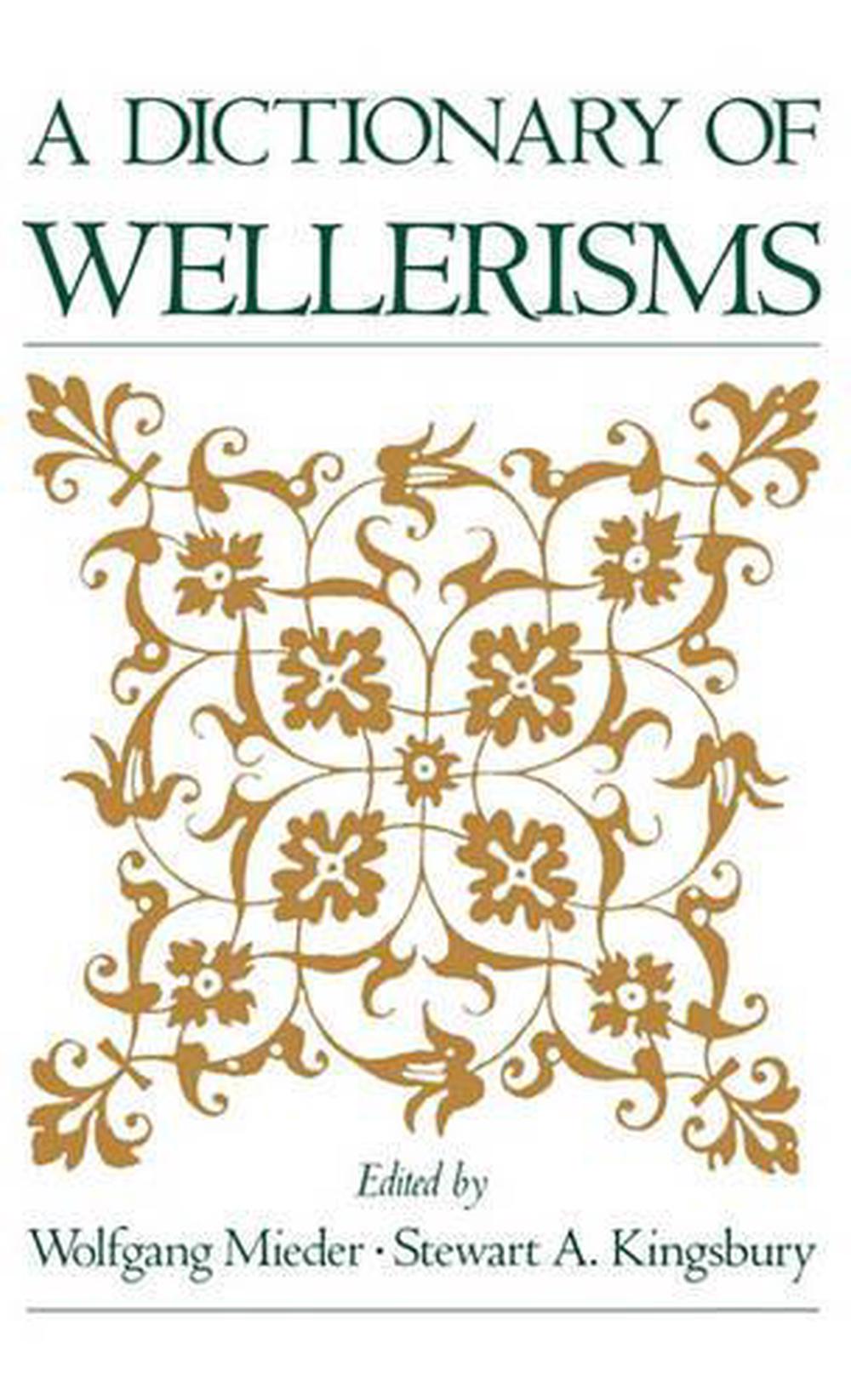
A Dictionary of Wellerisms
$51.31
- Hardcover
208 pages
- Release Date
29 September 1994
Summary
The wellerism - so called in English because it is a form of expression typical or reminiscent of Sam Weller or his father, two celebrated characters in Dickens’s Pickwick Papers - is a major subtype of the proverb. It consists of three parts: a speech or statement (often a proverb), identification of the speaker, and identification of the situation, which gives the expression an ironic or humorous twist, often in the form of a pun.A Dictionary of Wellerisms is the first work to collect all o…
Book Details
| ISBN-13: | 9780195083187 |
|---|---|
| ISBN-10: | 0195083180 |
| Author: | Wolfgang Mieder, Stewart A. Kingsbury |
| Publisher: | Oxford University Press |
| Imprint: | Oxford University Press |
| Format: | Hardcover |
| Number of Pages: | 208 |
| Release Date: | 29 September 1994 |
| Weight: | 361g |
| Dimensions: | 216mm x 146mm x 22mm |
You Can Find This Book In
What They're Saying
Critics Review
“Students and scholars of literature, folklore, linguistics and culturalhistory will appreciate this unusual collection of satyrical wit andhumor…”–Come-All-Ye
“A splendid idea and a first in the English language. All libraries will want a copy; all scholars concerned with the English language will find it of interest. There is no competitive volume.”–Alan Dundes, University of California, Berkeley”A most delightful collection of…proverbial puns. The volume’s a wonderful browser.“–King Features Syndicate”A Dictionary of Wellerisms…brings together the first complete collection of examples in English, drawing on literature, journalism, popular culture, and the Margaret Bryant collection of proverbial speech.“–Asian Folklore Studies”Students and scholars of literature, folklore, linguistics and cultural history will appreciate this unusual collection of satyrical wit and humor…“–Come-All-Ye
About The Author
Wolfgang Mieder
Wolfgang Meider is Chairperson of the Department of German and Russian, University of Vermont, and the author a Dictionary of American Proverbs (OUP, 1992) and Proverbs Are Never out of Season (OUP, 1993). Stewart A. Kingsbury is Professor of English (retired) at Northern Michigan University.
Returns
This item is eligible for free returns within 30 days of delivery. See our returns policy for further details.




